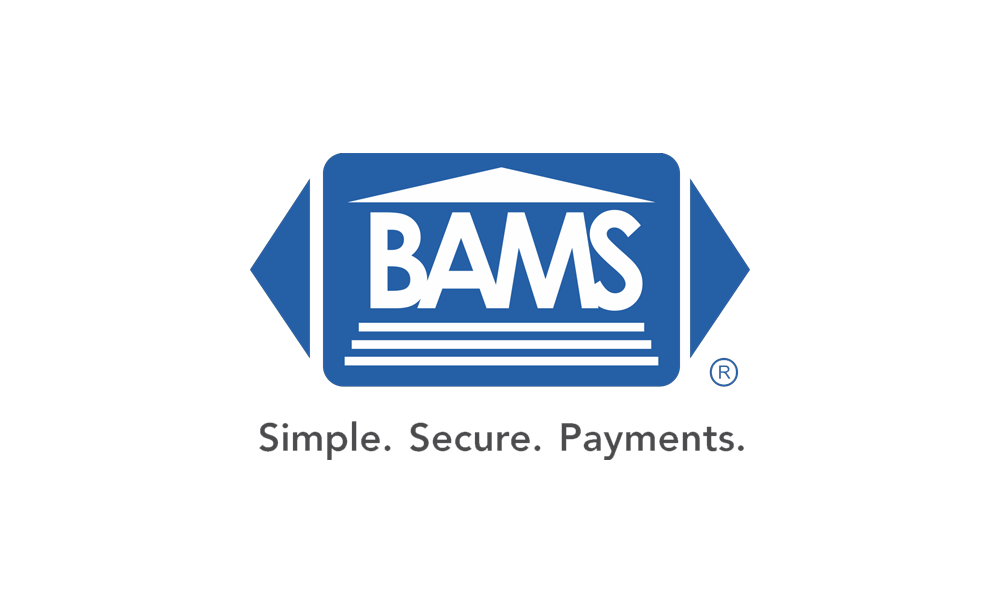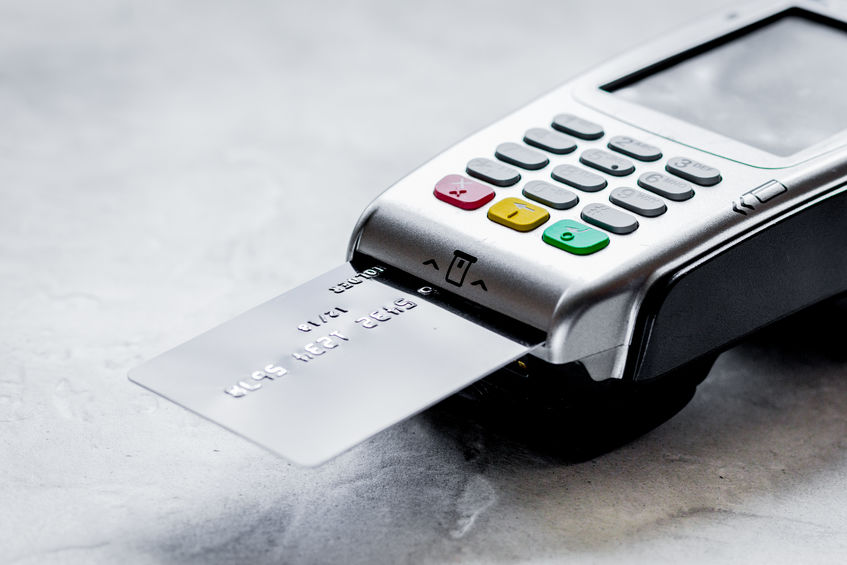SMB Retail Starter Guide – How to Start Accepting Electronic Payments
Getting started as a retail merchant is a daunting task, with a lot to think about and even more to do. Acquiring and managing inventory, staffing, marketing and advertising, accounting – there are so many factors to deal with that sometimes, to avoid adding to the pile, merchants will cut corners where they see opportunities, including in setting up their payment processing. It can be far too easy to just sign up for a PayPal or Square account and move on, but failing to put the proper thought into selecting a payment processing partner can cost a merchant both financially and through interruptions to service and sub-optimal payment operations. With that in mind, the following is a starters guide that new merchants can use to identify the key areas that need to be carefully considered prior to signing up for payment processing services. By paying close attention to each, you can ensure that your new business ends up with the ideal retail merchant account for your needs, maximizing utility and minimizing fees.
Figure Out Your Channels
One of the most important questions you’ll need to answer early on is where you want to sell. Omnichannel sales – operations that allow your customers to shop on their computers, their phones, and in-store – are the way of the future, but depending on your industry, and especially when your business is just starting up, you may be better served to focus on one channel over another. Whether you choose to sell through a storefront or a website, where you meet your customers will play a huge role in determining the ideal retail merchant account and what technology you need.
Brick and Mortar Retail
The classic option is traditional brick-and-mortar retail. The B&M route comes with overhead expenses ecommerce stores don’t, but today, selling in the physical world does not have to be as difficult, limiting, or expensive as it once was. Mobile payments tech now makes it possible for you to sell from almost anywhere, making low-cost options like pop-up shops, flea markets, and even home-based sales more practical than ever.
If you do decide to sell in a traditional storefront, or if you’re operating a business like a restaurant that mandates it to at least some extent, you have a variety of options ranging from traditional counter-based point-of-sale systems to simple, portable mobile card readers that can be used anywhere in-store. If you decide to take a more DIY approach, selling in places like pop-up shops, flea markets, or on the road, a simple smartphone-based card reader may be all you need.
It’s also worth considering how your payment tech will shape your customers’ impression of your business. A traditional POS feels safe and professional, while not all customers are going to be comfortable with or impressed by you swiping their credit card across the top of your phone. But, at the same time, when you’re just starting out and bootstrapping is a must, choosing technology solutions that fit your budget may be the most important factor of all.
ECommerce
If you decide to sell exclusively through a website, you’ll immediately put yourself at an advantage from an overhead perspective, as all you’ll need are an ecommerce system and a way to take payments – two pieces of technology that are readily available, and even potentially free for the former.
Your ecommerce system could take a variety of forms, from webstore systems like Magneto, to CMS-based systems like WooCommerce that are built on top of the WordPress blog architecture, to DIY systems like Shopify, to fully custom solutions. If you’re just starting out, the system you choose will be primarily driven by two things: your budget and the scope of your business. If you’re starting up a hobby business to make money on the side, a low-cost option like WooCommerce is probably the way to go. If you’re launching a store that will be a major endeavor or a long-term business, you can still utilize platforms like WooCommerce or Shopify, but you’ll likely want to spend more on customization and professional design.
Regardless of what ecommerce system you choose, you’ll also need a payment gateway. Some platforms, like Shopify, come with their own built-in gateways. The tradeoff in those cases is generally higher fees. Other ecommerce systems will require you to sign up with a third-party payment gateway like those available from Authorize.Net, USAePay, or NMI. The gateway acts as the payment connection between the customer and your retail merchant account, encrypting and transmitting the customer’s payment data when they pay. Your gateway may also offer value-added features like advanced fraud protection or secure offsite storage, and choosing the right one for you is about balancing features against the fees you pay on each transaction.
Choose Your Payment Types
Once you know where you want to sell, you’ll have to decide how you want to let your customers pay you. Whether you’re selling online or in-store, in today’s modern digital world, customers demand two things – speed and options. Whichever payment options you choose, your goal should always be to offer your customers the most flexible, frictionless payment experience you can, and that often means giving them the widest variety of payment choices possible.
Cash
Cash is rapidly falling out of favor in the wake of the global pandemic that saw people become very cautious of handing paper money and coins back and forth. However, as long as people are still carrying cash, as a business owner operating a brick and mortar store, you still need to accept it. In theory, cash requires nothing more than a place to store it, but it’s important to understand that improperly tracked cash sales can make inventory control and accounting absolute nightmares. So, even if your business runs primarily on cash, it’s still a good idea to invest in some type of point-of-sale system to ensure each transaction is logged accurately and automatically.
Credit and Debit Cards
If you’re selling in-store, your customers are going to want to pay with cards. If you’re selling online, they have little choice. Accepting the major credit cards – Visa and Mastercard – is a must. It’s also a good idea to offer Discover, and today, getting set up with American Express through the OptBlue program is so easy that there isn’t much reason not to do it. The cards you choose to accept will have a big impact on your selection of a retail merchant account, as not all payment processors offer the same fee schedules, and not all offer access to programs like Amex OptBlue. However, whether you opt to go with a high-fee third-party provider like PayPal, or a traditional merchant account through an ISO, PayFac, or payment processor, in today’s digital world, you need to find a way to accept electronic card payments.
Digital Wallets
Digital wallets are one of the newest payment options in the industry, and they’ve quickly gained widespread adoption, particularly with younger consumers. Digital wallets like Apple Pay, Google Pay, and Samsung Pay store payment card data in digital format on a user’s computer or mobile device. Instead of pulling out a card to make a payment, the customer can instead simply tap their phone in-store or click a single button online. The system will ask for biometric verification, generally through a thumbprint scan, making digital wallets not only the fastest and most convenient payment option, but arguably the most secure as well. By selecting a retail merchant account that offers contactless payment hardware and integrates with the right ecommerce platforms, you can begin accepting digital wallet payments online in a matter of a few clicks and in-store with no additional effort at all, since digital wallets use the same hardware as tap cards.
Consider Value-Added Customer Programs
In addition to payment types, one option you’ll find offered by certain retail merchant accounts is the ability to set up value-added programs for customers, increasing the number of payment options they have while simultaneously benefiting your business. The two most popular are gift cards and loyalty cards, and each offers a unique set of benefits to both your company and your customers.
Gift Cards
Gift cards are an extremely popular product because they allow people to quickly and easily buy gifts that recipients love to get, find useful, and offer a level of choice that a purchased product doesn’t. Gift cards are also great for your business because they provide revenue today for products or services tomorrow, and many gift cards go unused altogether, resulting in revenue that never sees any inventory go out the door. Generating revenue upfront is a key way to improve your cash flow, along with retail merchant account services like next-day funding. While gift certificates can be created using paper certificates, today, swipeable plastic cards are the norm, and your merchant services provider can likely help you get set up with both a supply of custom printed cards and instructions on how to integrate them with your POS system.
Loyalty Cards
Stamp cards have been around forever, but today, retailers have far more room to be creative with how they reward customer loyalty, thanks to electronic loyalty cards that interact with POS systems and even ecommerce stores. Setting up a loyalty program that rewards your customers for the money they spend or the amount of time they’ve been a customer is almost an expectation at this point, but because of the complex options available today, diving in without putting some serious design into your program is a mistake. Your retail merchant account provider should be able to help you both design and implement your loyalty program to ensure that it’s as profitable as possible and as easy as possible from a logistics perspective.
Setup Your Retail Merchant Account
With your channels, your preferred payment types, and any value-added programs you’re interested in thought through, you can begin looking for a retail merchant account provider that offers the services necessary to meet your needs. It can be tempting to just choose a company and apply, but your payment processor is going to be a big part of your business for years to come, and can also have a huge impact on your profitability and operations. With that in mind, there are three primary areas to carefully consider when choosing the right merchant services provider: fees, value-added services offered, and reputation.
Transaction Fees
Every transaction you process through your retail merchant account will be subject to a small fee. Some merchants don’t think twice about transaction fees because they’re so small – generally no more than a few percent and a few dimes on each sale. But when you add those tiny fees up across every transaction you process across years of business, they add up quickly, making it important to seek out a processing partner that offers you the best rates possible.
There are three types of fee structures available to merchants: flat-rate pricing, tiered pricing, and interchange-plus pricing. Flat rates are most commonly found with third-party processors like PayPal and Square, and are the most expensive option, albeit the simplest. The problem with flat-rate pricing is that it charges the highest rate possible on every transaction, regardless of what the actual base cost – known as the interchange rate – from the credit card companies is. Tiered pricing breaks transactions down into categories to take the interchange rate into account on a high level, but it’s still an imperfect model that results in inflated fees.
Interchange-plus pricing dynamically adjusts the fees on each and every transaction based on the interchange rate. That not only makes interchange-plus the lowest pricing available, it also makes it the most transparent, since interchange rates are published publicly. All else being equal, choosing a payment processor that offers you interchange-plus pricing on your retail merchant account is a great way to ensure your fees cut into your profits as little as possible.
Value-Added Service Offerings
The value-added services a processor offers matter a lot, because they have an impact on your operations and your need to engage with additional third-party service providers. Beyond the two areas already mentioned – loyalty and gift card programs – there are a variety of value-added services that your retail merchant account provider may or may not offer.
Some common value-added services worth looking for include:
- Bundled payment gateway services
- Next-day funding
- Advanced fraud protection
- Chargeback defense and response tools
- Advanced reporting and analytics tools
Finding a provider that offers the widest possible set of value-added features and services is a great way to reduce friction in your payment operations and maximize the bang for your buck, but it’s important to analyze how additional features impact your pricing, as not all are necessarily included in your base pricing.
Reputation
Your payment processing partner is a crucial ally in running a profitable business, and they have a direct impact on your ability to serve your customers and maintain seamless payment operations. As such, it’s important to find a processor that prioritizes service and treats your relationship like a true partnership, where their success and yours are fundamentally linked. The best way to find a partner you can build a strong long-term relationship with is to look at companies with a long history in the industry and a stellar reputation backed by positive reviews.
The payments landscape can be complex, and with pressing issues like PCI compliance and data security that can quickly overwhelm even the most experienced merchants, having a partner with a real commitment to one-on-one service is invaluable. Ideally, the processor you choose should offer you a dedicated support team and have a reputation for attentive, consistent, and readily available support. Online reviews can be an effective way to identify payment processors with those qualities, and word-of-mouth referrals are even better. But, at the end of the day, reaching out to a potential processing partner to talk one-on-one is often the best way to get a feel for the type of service you can expect.
Get in Touch with BAMS Today
BAMS is one of the payments industry’s top merchant services providers, offering retail merchant accounts that enable merchants to accept electronic payments of all types, including credit cards, debit cards, digital wallets, gift cards, and more. BAMS retail merchant accounts also offer a full suite of value-added features and services designed to make doing business easier, and dedicated one-on-one service and support delivered by one of the most experienced teams in the industry. Best of all, the BAMS interchange-plus pricing model offers the guaranteed lowest fees available anywhere.
To find out more about how a BAMS retail merchant account can help your business and save you significant money on your monthly merchant statement, get started with a comprehensive five-point price comparison today.




